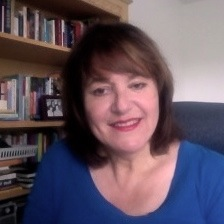From time to time I’ll ask another writer to be a guest blogger. My first guest is my friend Mary Ann de Stefano. Mary Ann is a writer, editor and more. Not long ago she wrote the following essay for the Florida Writers Association blog, and I asked if I might repost it here on “Jumping Off Cliffs.” Both she and FWA agreed and here’s her worthwhile missive which all beginning writers should take to heart.
TALE OF TWO WRITERS
Recently I had the opportunity to do manuscript evaluations for two writers who had many things in common—and one important difference.
Both writers had completed drafts for mysteries with an edge of romance. They are females around my age and readers with little writing experience or instruction. This was the first attempt at a novel for both of them. They had created interesting female protagonists and stories with great potential, and they demonstrated an ability to write well with a unique voice. There were many positives about both manuscripts.
However, I felt their work was at an early draft stage, and although the manuscripts held promise, there were significant issues with plotting, pacing, characterization, and style that would need to be addressed in revision.
As always, I delivered the written evaluation (a comprehensive and detailed set of notes) as part of a conversation with the writer, and, as always, I pointed out what worked in the manuscript as well as what didn’t work, and I offered encouragement along with the reminder that no one gets it right the first time.
The first writer—I’ll call her “Ms. Pink”—eagerly soaked up the advice and asked a lot of questions. We had a lively to and fro about her story, her characters, and writing in general. There was a lot of laughter as we talked (just as there was great humor in her work). She said she enjoyed the process of writing for itself. Writing a book was like a giant puzzle to her, and she wanted to see if she could figure it out. My feedback gave her more information about how to solve the puzzle, and she looked forward to digging into her book again.
The other writer, “Ms. Blue,” didn’t receive my feedback quite so well, even though I provided her with the same gentle but realistic mixture of positives, negatives, and encouragement. Much of my advice, she said, was familiar, because a family member had told her the same things. Shortly after we talked, Ms. Blue wrote me to say that she would not continue to work on the book, she would not read the evaluation—and she would give up writing.
Ms. Pink told me that family members often asked her when she was going to be published. She answered them by saying something to the effect that if she played tennis, they wouldn’t be asking her when she was going to play at Wimbledon, or if she played golf they wouldn’t be asking her when she was going to be in the Masters Tournament. Good answers! Great attitude!
But Ms. Blue had apparently believed she could fast track to Wimbledon, and when it became clear that wouldn’t be as easy as she thought, she gave up. It made me sad that she gave up, but she had set herself up for disappointment with faulty notions about what it takes to be a writer.
Many successful writers will tell you they have “practice” novels stuck away in a drawer. We understand that learning to play an instrument takes practice, and we’d never assume we could perform at Carnegie Hall after doodling around with a violin for a few months. You wouldn’t want a surgeon who had picked up a scalpel for the first time to take out your appendix. Yet somehow we believe, some of us believe, we can successfully write a book—a hugely complex task— without the training, time, and practice it takes to do it well.
Ms. Pink is willing to do the necessary work. Ms. Blue isn’t. Which writer are you?
______________________________
 Mary Ann de Stefano is a writer, editor, and organizer of writing workshops with 30 years of experience in publishing and writing consulting. Besides working one-on-one with writers who are developing books, she builds websites and advises on e-marketing. Mary Ann does business at MAD about Words, named as a play on her initials and love for writing.
Mary Ann de Stefano is a writer, editor, and organizer of writing workshops with 30 years of experience in publishing and writing consulting. Besides working one-on-one with writers who are developing books, she builds websites and advises on e-marketing. Mary Ann does business at MAD about Words, named as a play on her initials and love for writing.
A version of this article appeared on the Florida Writers Association blog.